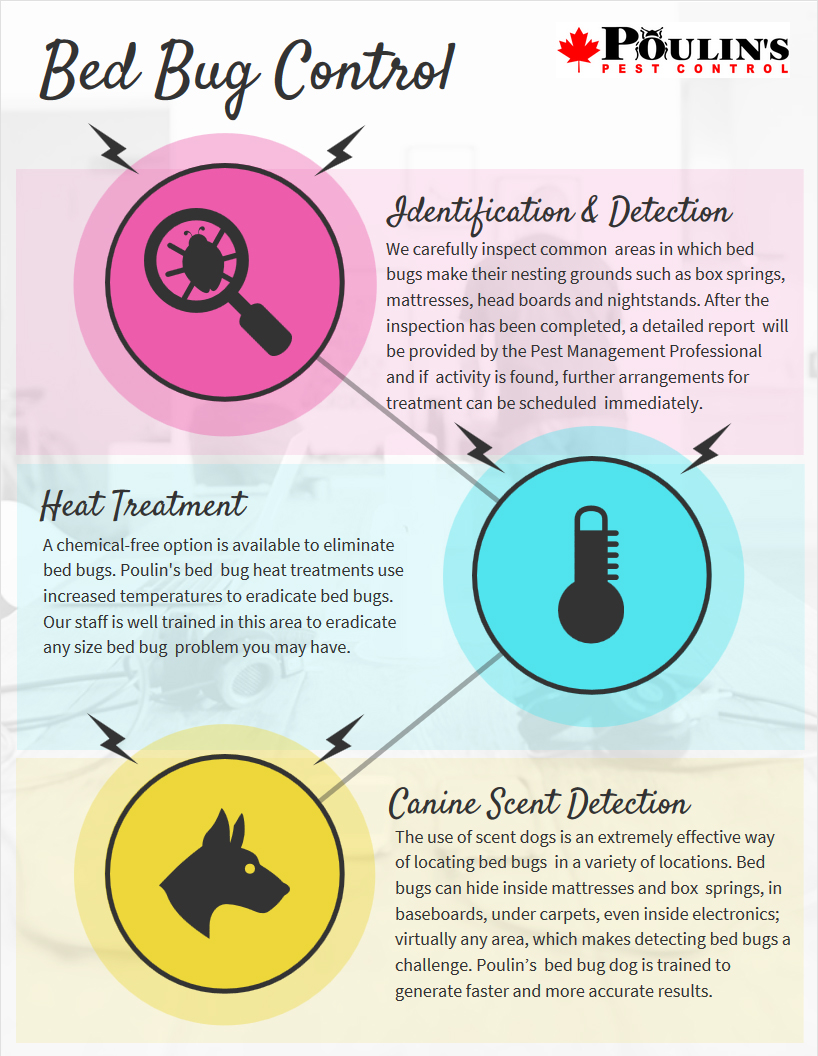A Breakdown of the Numerous Kinds Of Pest Control Solutions
In the world of insect control, a multitude of approaches exist to deal with and fight the existence of undesirable creatures. From the standard use of chemical pesticides to more ingenious biological control options, each approach uses distinct benefits and limitations. As we browse through the varied landscape of parasite control solutions, recognizing the complexities of each approach ends up being extremely important in identifying one of the most effective training course of action. Remain tuned as we discover the nuanced world of bug control techniques and uncover how each type plays an one-of-a-kind role in securing our settings.
Chemical Pesticides
Chemical pesticides are typically utilized in bug control to successfully remove a vast range of insects and other pests. These pesticides work by targeting the nerve system of the insects, disrupting their normal functions, and ultimately resulting in their demise. Using chemical pesticides has been a staple in the pest control industry for years as a result of their performance and fast outcomes.

However, it is necessary to use chemical pesticides with care as a result of their prospective unsafe effects on the atmosphere and non-target varieties. Improper application or overuse of these chemicals can bring about pollution, damage to beneficial insects, and resistance advancement in parasite populations. It is vital to adhere to safety guidelines and policies when utilizing chemical pesticides for parasite control.
Biological Control Approaches
Thinking about the potential environmental effects and dangers related to chemical pesticides, biological control techniques provide a more sustainable approach to managing parasite populaces. Biological control involves making use of all-natural adversaries, such as killers, parasites, and pathogens, to reduce pest populaces. This technique is typically much more targeted, influencing just the particular pest varieties while reducing harm to valuable bugs, humans, and the setting.

As soon as developed, all-natural opponents can assist control pest populations continuously without the demand for duplicated applications of chemicals. Furthermore, biological control is frequently more cost-effective and can aid lower chemical resistance in insect populations over time.

Mechanical Insect Control
Mechanical pest control entails the physical manipulation or elimination of insects to handle their populations successfully. This method is usually utilized together with other bug control strategies for thorough pest monitoring. One common example of mechanical parasite control is using catches to record rodents or pests. These traps can be established in strategic places where parasites are known to dwell, assisting to reduce their numbers.
Another mechanical strategy is the usage of barriers such as displays, nets, or fences to block insects from going into certain locations. By literally preventing pests from accessing a location, the possibility of invasions or damages can be dramatically lowered. Additionally, manual methods like handpicking pests off structures or plants can be effective for smaller-scale infestations.
While mechanical pest control methods can be labor-intensive, they offer a non-chemical alternative that can be lasting and eco pleasant. By targeting bugs straight, mechanical control methods can help keep pest populaces in check without relying upon chemicals.
Natural Treatments
Utilizing natural solutions for parasite control uses a sustainable and eco-friendly strategy to taking care of bug populations without resorting to chemical treatments. All-natural remedies involve making use of compounds derived from plants, minerals, or various other normally occurring resources to prevent or eliminate pests. As an example, planting certain natural herbs like basil, mint, or lavender around your home can ward off insects as a result of their strong aromas. Diatomaceous earth, a powder made from fossilized algae, can be made use bed bug removal of to fight parasites like ants, cockroaches, and bed pests by dehydrating their exoskeletons.
Furthermore, crucial oils such as tea tree oil or neem oil have insecticidal residential properties that can effectively manage bugs while being secure for the environment. One more all-natural solution is introducing useful bugs like ladybugs or hoping mantises to your yard to take advantage of dangerous parasites. By incorporating these natural services right into bug monitoring strategies, individuals can decrease their dependence on artificial chemicals and advertise a much healthier, extra well balanced ecosystem.
Integrated Insect Management
Integrated Insect Administration (IPM) is a detailed strategy that incorporates numerous bed bug spray approaches to effectively control pest populations while minimizing risks to human health and the environment. IPM involves the assimilation of multiple insect control methods such as biological control, environment adjustment, alteration of social methods, and the use of resistant crop varieties. By making use of a mix of these methods, IPM aims to decrease reliance on chemical pesticides, which can have adverse effect on ecological communities and human wellness.
One secret element of IPM is the emphasis on avoidance. By applying actions to stop bug invasions before they take place, such as keeping appropriate sanitation and sealing entry factors, the demand for reactive pest control actions is lessened. Tracking and regular examinations play a critical function in IPM, allowing for very early detection of pest concerns and prompt treatment.
Final Thought
In final thought, the numerous kinds of pest control services use an array of options for efficiently taking care of parasite infestations. Biological control techniques use all-natural killers to regulate pests. Integrated Insect Administration integrates numerous approaches for a holistic approach to pest control.
Chemical pesticides are typically utilized my review here in bug control to successfully remove a vast array of pests and various other parasites.Mechanical pest control involves the physical manipulation or removal of pests to manage their populaces effectively (Kings pest control Cincinnati).Utilizing natural solutions for parasite control uses a sustainable and environmentally friendly method to managing parasite populaces without resorting to chemical interventions.Integrated Insect Management (IPM) is a thorough strategy that integrates different strategies to properly regulate pest populations while minimizing threats to human health and wellness and the environment.In verdict, the different types of parasite control options provide a range of choices for efficiently managing bug infestations